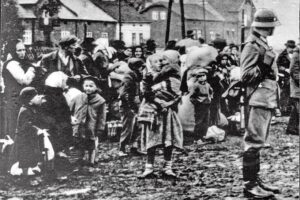The “enormous challenges” faced by the northeastern Nigerian state of Borno, which include a continuing terrorist insurgency, need to be recognized by the international community to create what the UN Secretary-General has called a “state of hope and a state of reality”, in a region which he said did not live up to its reputation for “terrorism, violence, displacement or despair.”
António Guterres made the remarks after visiting a UN-supported reintegration centre for children who have been involved with armed groups, in Maiduguri, the capital and the largest city in Borno State.
Borno has been one of the epicentres of violent extremism and terrorist activity in Nigeria and across the wider Sahel region.
Insecurity over the past 12 years linked to armed groups, including the terrorist group Boko Haram, has disrupted livelihoods and led to the displacement of some 2.2 million people, according to UN figures.
The UN chief visited the Bulumkutu Interim Care Centre, which opened in June 2016. The transit centre has provided shelter, protection and other lifesaving services to 7,036 people, including 4,018 children (2,756 boys and 1,262 girls) in preparation for reintegration back to their communities.
Many of these children were forced – or chose, through a lack of other opportunities – to join terrorist groups and take up arms as combatants. Some were taken into detention and then released after being suspected of involvement in violent acts.
At Bulumkutu, they are being given a fresh opportunity to start a new life as a local religious leader Imam Mallam Abba Bilal Goni explained. “We established a repentance and reward programme as part of the reintegration process. We provide education and job training, so these young people and can have a future.”
After meeting a group of children, Mr Guterres said: “I was amazed to see today in the centre that those that have been terrorists, want to integrate in and contribute to society. The policy that is in place here is a policy of reconciliation and reintegration.”
Overlapping crises
Terrorism and the violence and insecurity it has brought to communities not just in Nigeria but in many neighbouring countries is one symptom of a complicated mix of overlapping crises. UN Photo/Eskinder DebebeUN Secretary-General António Guterres meets children at Bulumkutu Interim Care Centre in Maiduguri in Borno State.
UN Photo/Eskinder DebebeUN Secretary-General António Guterres meets children at Bulumkutu Interim Care Centre in Maiduguri in Borno State.
Changing climatic conditions, including lower rainfall, have led to competition and sometimes conflict over limited resources; deforestation and overgrazing have further denuded the environment which the largely nomadic peoples of the Sahel rely on to survive and has led many of them to migrate to different areas, putting pressure on already stretched basic services, such as health and education. Thousands of schools have been forced to close, mainly due to insecurity.
Large-scale humanitarian needs
The UN says that humanitarian needs in northeastern Nigeria continue to be large-scale, compounded by the COVID-19 pandemic and deteriorating food security situation, due to the challenges farmers face both growing and selling produce.
An estimated 8.4 million people need humanitarian and protection assistance. Of those around 3.2 million people are not getting enough food to eat.
The humanitarian response plan for Nigeria calls for US$1.1 billion to assist those people in need in the north-east of the country and is currently only 8.7 per cent funded.
The cost of humanitarian operations has recently risen, partly as an effect of the war in Ukraine, with the price of diesel increasing by 52 per cent from the period prior to the crisis, while fertilizer prices have increased by nearly 49 per cent.
Mr. Guterres said it is “absolutely essential to understand that, in a situation like this, it’s not enough to provide humanitarian assistance. He called on the international community “to invest in the Borno of hope, to provide support to the projects of the government of Borno and of civil society in order to create the conditions for real development, the conditions in which schools work, hospitals work and jobs exist; conditions in which people get to live in peace and solidarity.”
He added that the international community needs to support “not only a state of hope, but a state of reality, in which there is no room for terrorism.” UNOCHA/Damilola OnafuwaSome 3.2 million people are not getting enough to eat in north-east Nigeria.
Nigeria’s ‘big role’, on the world stage
Speaking to journalists on Wednesday alongside Nigeria’s President Muhammadu Buhari, the UN chief said the country hand its people, “have a big role to play in shaping solutions to the global crises engulfing our world.”
“Nigeria is a pillar of continental and global cooperation – and a steadfast partner of the United Nations”, he added.
Nigeria above all, is a nation where “Africa’s promise and potential, come to vivid life”, he said, highlighting meetings he had had earlier in the day with women and young people, “whose vision and commitment were deeply inspiring.”
“I also met with religious and cultural leaders representing Nigeria’s beating multi-ethnic heart, and business leaders pushing Nigeria’s economy forward”, he told reporters.
Referencing his visit a day earlier to Borno, he said he had left the state, with the sense that Nigeria will defeat the threat of terrorism that has plagued the northeast for so long.
“We are very active in support of the humanitarian efforts of the Nigerian government, and that is why we have called for an additional $351 million as part of the overall $1.1 billion for the humanitarian response plan for Nigeria.
But despite all they have seen and endured, the people I met remain hopeful and committed to returning to their communities and resuming their lives.”
Mr. Guterres said the “spirit of hope amidst hardship – and solidarity in struggle” – had been at the centre of his discussions with President Buhari.
“We discussed the importance of laying the groundwork to ensure peaceful and democratic elections next year – and the full participation of Nigeria’s women and young people in all areas. We also discussed the government’s measures to address security challenges across the country.”
Senegal and Niger
The Secretary-General’s trip to the region began in Senegal at the weekend. Afterwards he travelled to Niger, where he called for more resources to be made available to battle the terrorist scourge in the region, and met some of those thousands displaced by the combination of terrorism, rampant insecurity, and other factors like climate change.




